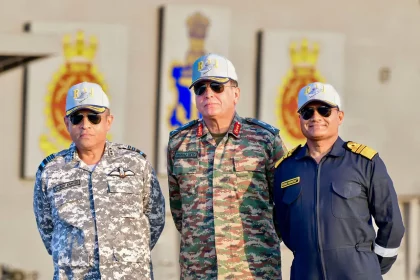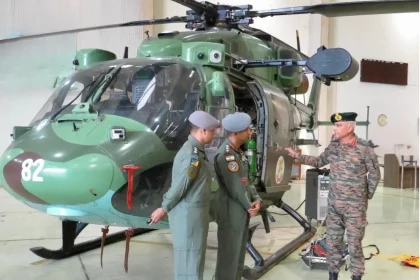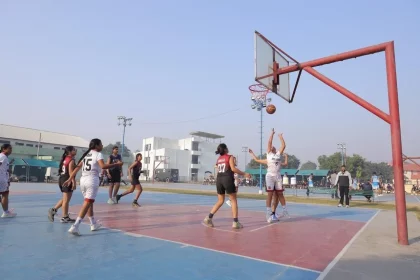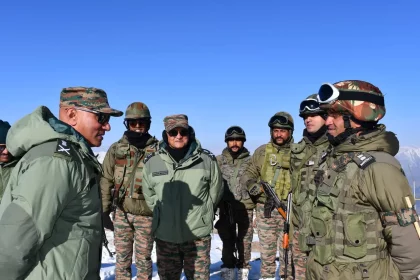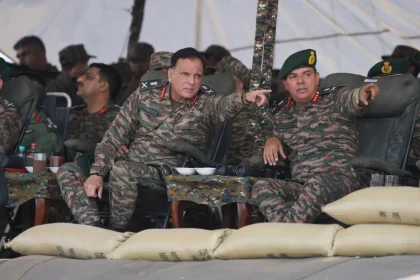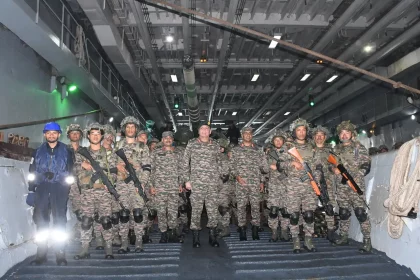Lt Gen Dhiraj Seth, VAdm Krishna Swaminathan & Air Mshl Nagesh Kapoor Review Multi-Domain Operations Aboard INS Vikrant
Army, Navy, and Air Force chiefs witness night flying operations and underway replenishment, reinforcing India’s tri-service integration.
GOC Rising Star Corps Reviews Operational Preparedness of Forward Indian Army Aviation Bases
Commander praises high mission readiness and proactive measures to counter evolving threats.
APS Patiala Hosts Western Command Inter-APS Basketball Tournament; APS Patiala (Girls) and APS Dhaula Kuan (Boys) Emerge Champions
Army Public School (APS) Patiala, under the aegis of Airawat Division, successfully hosted the Western Command Inter Army Public Schools…
Lt Gen Pratik Sharma Reviews Anti-Infiltration Grid in North Kashmir
Army Commander underscores technological integration and unwavering preparedness along the Line of Control.
Akhand Prahaar – The Power of Integrated Combat Unleashed in the Desert Sector
Southern Command validates multi-domain, high-tempo combat capability of Konark Corps under Exercise Trishul.
Lt Gen Dhiraj Seth Reviews Joint Sea–Land Operations Onboard INS Jalashwa
Indian Army, Navy and Air Force demonstrate seamless tri-service synergy and amphibious assault capability.

